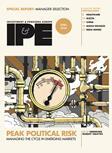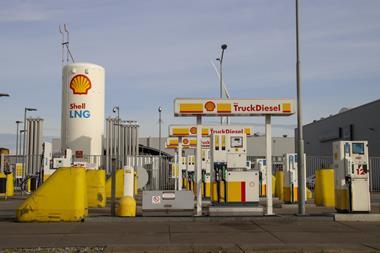A $10.6trn consortium of asset owners has said today that it is becoming “a competitive necessity” for asset managers to take pioneering approaches to climate change.
The Net Zero Asset Owner Alliance (NZAOA) made the comments in its latest progress report, published today, in which it also revealed plans to turn its attention to benchmarks and private markets.
Since its launch in 2019, the UN-backed body has grown to 74 members, including many of Europe’s largest pension funds. All signatories must set decarbonisation targets of between 22% and 32% by 2025 and 49% and 65% by 2030 within a year of joining the alliance. In its progress report, it said 44 investors had now done this.
The document also revealed that NZAOA’s members are “discussing fixed-income benchmarks and general principles for benchmarks with a view to helping institutional investors steer globally diversified investment portfolios to net zero”.
When asked for further information, a spokesperson said the alliance had looked into the range of equity benchmarks currently available under the EU’s new regulatory categories for Climate Transition Benchmarks and Paris Aligned Benchmarks, but “fixed-income climate benchmarks for now hardly exist”.
Alliance members are discussing “key principles which climate benchmarks in general should follow in order to make them work for large, global institutional asset owners with a net-zero ambition,” the spokesperson added.
NZAOA is also preparing to issue a “call to action for General Partners” in a bid to encourage private equity managers “to start immediately working towards full carbon transparency”.
The document, which will be published before the end of the year, will include a list of “meaningful actions that can be taken in the private asset space to overcome the key challenge of data availability”.
The group also highlighted the role of governments and policymakers in supporting asset owners’ decarbonisation pledges. It urged governments to ensure that energy security measures currently being put in place to tackle the energy crisis in Europe “are compatible with net-zero scenarios, as delineated by either the International Energy Agency (IEA) or the Intergovernmental Panel on Climate Change”.
“Countries should focus on diversifying their energy supply and scaling energy efficiency measures,” it added.
There are major concerns that the energy crisis will derail net zero ambitions as governments desperately seek new sources of energy to replace the reduced supply of Russian gas.
Last week, the UK’s new Prime Minister, Liz Truss, confirmed that her government would lift a ban on fracking in order to “get gas flowing” – despite the IEA warning last year that any new fossil fuel projects would be incompatible with meeting net zero by 2050.
The German government has reconnected old coal-fired power plants to its network as part of its emergency energy strategy.
“The current triple energy policy challenge – namely tackling energy security, affordability and climate change – further underscores the imperative of a structural shift to net zero,” NZAOA said in its report, adding that carbon pricing would play an important role in achieving all three objectives and highlighting five best practices in designing carbon markets.
Read the digital edition of IPE’s latest magazine

















No comments yet